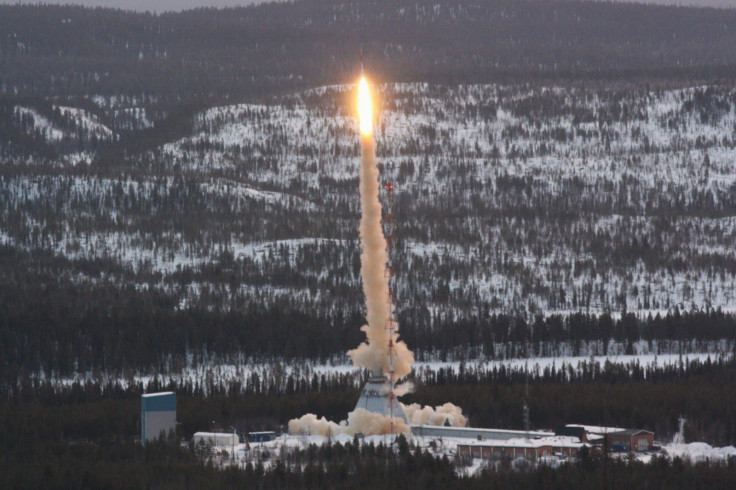DNA Survives Space Trip: 'Boosts Search for Alien Life'

DNA molecules have survived a trip to space and back again, much to the surprise of scientists.
Published in the journal PLOS One, experts attached small, double-stranded DNA molecules to a rocket and launched it into space. It then completed a space flight, re-entered Earth's atmosphere and landed successfully.
Scientists from the University of Zurich's Institute of Anatomy then found the DNA molecules had not only survived the TEXUS-49 mission, but that genetic information about bacterial and connective tissue cells could be transferred.
The DNA was able to survive heating up to 1,000C. Analysis showed it could be recovered from all application sites, with up to 35% of the DNA retaining its full biological function.
Study leader Oliver Ullrich said: "This study provides experimental evidence that the DNA's genetic information is essentially capable of surviving the extreme conditions of space and the re-entry into Earth's dense atmosphere."
Researcher Cora Thiel added they were not expecting the DNA to be so resilient: "We were completely surprised to find so much intact and functionally active DNA."

Experts say the findings could boost the search for alien life, as DNA could reach us from the far reaches of outer space – 100 tonnes of extraterrestrial material carried on meteorites hits our planet every day.
DNA serves as a biomarker in the search for extraterrestrial life, with scientists working to characterise and compare the influence of Earth and space on DNA.
The findings could allow scientists to develop a model for the nucleic acids that would serve as biomarkers in the search for alien life.
However, the researchers also warned that the DNA surviving could mean we have contaminated space with our own DNA on landing sites.
The authors said: "Originally, we designed this experiment as a technology test for biomarker stability during spaceflight and re-entry. We never expected to recover so many intact and functional active DNA. But it is not only an issue from space to Earth, it is also an issue from Earth to space and to other planets: Our findings made us a little bit worried about the probability of contaminating space crafts, landers and landing sites with DNA from Earth."
Ullrich added: "The results show that it is by no means unlikely that, despite all the safety precautions, space ships could also carry terrestrial DNA to their landing site. We need to have this under control in the search for extraterrestrial life."
© Copyright IBTimes 2025. All rights reserved.






















